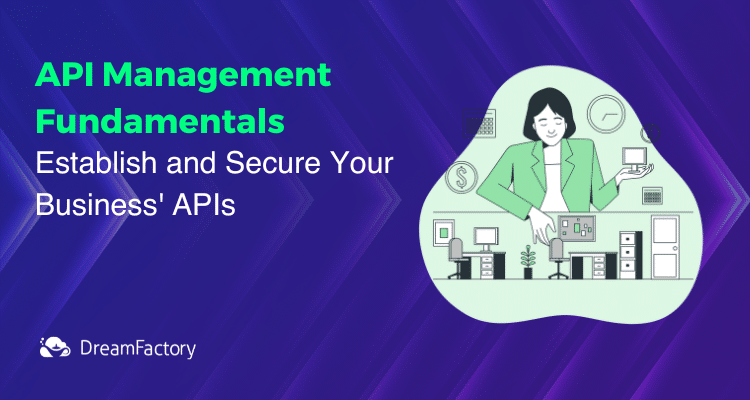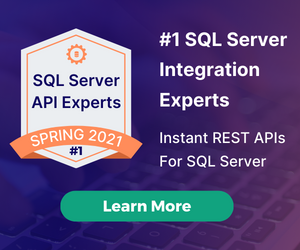The Fundamentals of API Management
by Spencer Nguyen • January 11, 2023

Application programming interfaces (APIs), especially web service APIs, have completely transformed the software development industry. Surveys of CIOs and other enterprise tech leaders in the past 12 months show incredible growth in the number of API consumers, with almost all surveyed agreeing that APIs are a component of their strategies going forward. The importance of APIs extends beyond IT groups and development teams: 98% of enterprise leaders said that APIs are an essential part of their organization’s digital transformation efforts. In addition, 97% said that a successful API strategy is important for future revenue and growth. Since APIs are used to connect web services, transport data, and handle countless other critical business tasks, the topic of API management is more important than ever.
If you’re unsure that your team has the right API strategy, learn what API management is and what the most successful companies are doing right now in this complete guide to the fundamentals of API management.
What is API Management?
API management is any system used by an organization to oversee the creation, development, documentation, and deployment of their APIs. API management is accomplished in various ways across different organizations, but all methods address basic needs like documentation, monitoring, security, and version control.
In the past decade, software development has shifted significantly towards web services, microapps, and the microservice architecture. These approaches have seen massive growth in mobile apps and internet services, all powered by the exchange of information via web service APIs. This information sharing has put a spotlight on the need for effective API management strategies.
Why is API Management Important in Today’s World?
APIs make a company’s data, intellectual property, and other assets available to customers, vendors, employees, and other applications. Because APIs are so important, API management has become especially critical because it defines how organizations secure, govern, scale, and even monetize their APIs.
API Governance
API governance is one of the most essential functions of API management. The main goal of API governance is to create a consistent experience for end users. This streamlined experience is accomplished by a combination reusing API components, lifecycle management, documentation, and overall good API discoverability practices.
API Analytics
Most API management approaches will include some form of API analytics. Through the centralized collection and analysis of API metrics, developers gain insight into how their APIs are being used. Analytics also provides a method for gauging an API’s performance.
API Monetization
API monetization refers to the role an enterprise API plays in generating revenue. This could be through the sale of customized service packages, licensing of products and services, and the productization of data.
API Security
API security is also a crucial component of API management, defining how APIs are protected against attacks and unauthorized access. The older SOAP web service API standard is often seen as more secure but more limited in comparison to the more flexible REST API specification standards and policies. REST API standards and policies are often in line with regulatory requirements and customer specifications and are enforced by API management. API management is often used to oversee traffic to back-end systems, typically with an API management platform.
Features of API Management Platforms
API management solutions come in many flavors, but they all generally offer the following core features:
API Design
With an API management solution, you can design, publish, and deploy APIs with ease. While you’re at it, you can record security policies, create descriptions, write documentation, set usage limits, define runtime capabilities, and more, ensuring that relevant information is only a click away for all your company’s APIs. This often includes the ability to generate XML for SOAP APIs or JSON for use with RESTful APIs.
Gateway
The right management solution also doubles as an API gateway, meaning it acts as your APIs’ gatekeeper. In doing so, it enforces the right security policies for all your APIs and associated requests. The software also ensures better security through proper authentication.
Storage
API management lets you store or catalog your APIs conveniently, allowing you to expose them to internal or external stakeholders on an as-needed basis. You can also turn the catalog into a marketplace for your company’s APIs and enable monetization, allowing users to subscribe to an API, get support when using it, and more.
Analytics
Reporting and analytics tools are both critical and practical, so it makes sense for an API management solution to bundle them in. The right platform will enable you to monitor usage, load, logs, historical metrics, and other data for all your APIs. It should also track uptime and notify you of errors.
What to Look for in an API Management Platform
While API management platforms' features vary, some essential components should be included in any platform you choose.
The first thing to look for is the ability to automate and control API calls and connections. This is the primary function of an API platform and should be a feature with whichever option you choose. However, you’ll want to gauge the ease of use involved in API design and generation.
Another important feature is a methodology to ensure consistency among API implementations and versions. Look for a version control system and the ability to reuse pre-existing APIs rather than coding each new project from scratch.
Traffic monitoring and analysis is a feature you will find on higher-end management platforms. As traffic analysis is an important function for judging the load your APIs put on your systems, make sure the platform of your choice has this functionality.
Some management platforms offer memory management and caching mechanisms for improving performance. Again, this is not a feature you will find on all systems but a component that offers many benefits. Load balancing, fault tolerance, and endpoint configuration are other performance-related features that most organizations consider essential.
API security and backend protection features are especially critical. You will save a lot of time and hassle by using a platform that can ensure the safety of your systems and data.
API platforms can be built by in-house developer teams or purchased as a service from an iPaaS provider. However, most development teams find it beneficial to buy a service rather than develop a solution themselves due to the time and effort involved and the high quality of available services.
API Management Platform Architecture
The best API management platforms feature an architecture with several components working together to provide an all-encompassing management solution. These components include:
- An API portal. Developers will typically onboard and deploy their APIs in a portal that allows for managing code and other resources.
- Lifecycle management. The platform manages the API lifecycle of design, development, testing, deployment, deprecation, and retirement.
- Policy management. The platform should include a way to manage the lifecycle of policies, which follows a similar path as the API’s lifecycle.
- Analytics. Most API platforms will have dashboards that provide an easily accessible overview of API usage and performance.
- API gateway. An API gateway is a software front-end that handles the presentation of APIs to clients. API gateways can also be used as a management component within a microservices architecture and manage B2B data exchanges.
The Benefits of API Management
An API building solution like DreamFactory helps empower your developers to work more efficiently and effectively. Not only will you get more out of your APIs, but your teams will save time tracking down errors or monitoring statuses. With the right API solution, you’ll enjoy all the following benefits.
- A frictionless, intuitive, user-friendly development environment, helping your team design APIs, endpoints, and connectors with ease. Composing complex integration flows has never been simpler.
- For easy access, a catalog of all your company’s assets, including APIs, templates, and connectors. Set permissions to make assets public or private using access control tools.
- A handy web-based developer portal to administer all aspects of DreamFactory’s API management solution, whether on-premises or cloud-native. You can manage users, traffic, SLAs, integration flows, and more for all your APIs with a few clicks.
- Real-time integration and orchestration with powerful data and application tools. Use the devices in the way that works best for you, with the deployment option that best fits your business needs.
- Enterprise-level security, availability, scalability, and reliability in an advanced suite of runtime services.
The most advanced API platforms offer even more benefits. This includes seamlessly combining databases and offering full lifecycle API management. Before committing to a particular platform, meet with your API developers and operations team to make a list of all your API needs and match them up with the feature sets of available management platforms.
DreamFactory: Comprehensive Control of Your APIs
Managing your company’s APIs, connectors, and integration flows will no longer be met with hurdles, roadblocks, or unnecessary complexity. DreamFactory offers a complete API management platform that runs on your choice of operating system and hardware or with our iPaaS cloud solution.
Going without a complete management platform can leave you a competitive disadvantage in today’s API-driven ecosystem. As other companies embrace digital transformation and the API economy, you may be left behind without comprehensive control of your APIs. Let DreamFactory take your API management strategy to the next level and ensure the visibility, speed, and analytics your company requires while you take advantage of flexible pricing.
Start your free DreamFactory 14-day free trial today and see how our API builder can upgrade your enterprise.
Related Reading:
TL;DR - GET AN AI SUMMARY
AI SUMMARY
READY TO BUILD YOUR API?
See how DreamFactory can automatically generate REST APIs for your database in minutes.
Try DreamFactory FreeAs a seasoned content moderator with a keen eye for detail and a passion for upholding the highest standards of quality and integrity in all of their work, Spencer Nguyen brings a professional yet empathetic approach to every task.
























